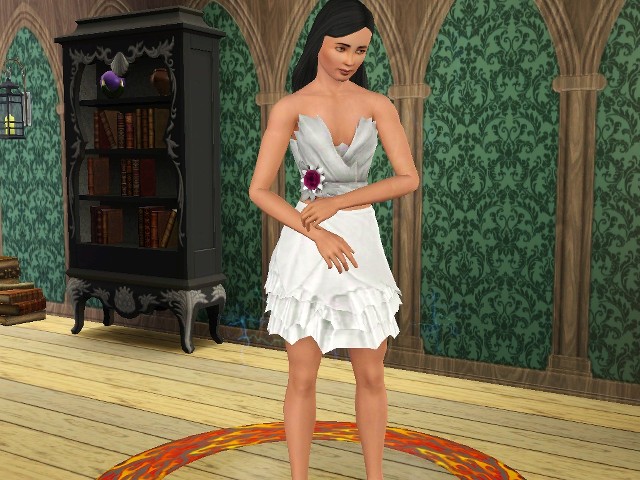 Sambucus helped Salvia up from the floor where she had fallen. Her head had been spinning, and she had felt hollow inside, completely drained of all her magical abilities. He held on to her – though she wasn’t going anywhere – while Rubia turned the pages of the huge book on the lectern. Then he stepped back, leaving Salvia alone in the middle of the floor. Rubia began to read aloud from the book, and a ring of flames appeared around Salvia’s feet and then rose up to engulf her body.
Sambucus helped Salvia up from the floor where she had fallen. Her head had been spinning, and she had felt hollow inside, completely drained of all her magical abilities. He held on to her – though she wasn’t going anywhere – while Rubia turned the pages of the huge book on the lectern. Then he stepped back, leaving Salvia alone in the middle of the floor. Rubia began to read aloud from the book, and a ring of flames appeared around Salvia’s feet and then rose up to engulf her body.And when they died down again, she was different. She felt it instantly. Her strength had returned – she no longer felt physically drained – but something was missing. Then she realised what it was. She no longer had any magic within her. Rubia had turned her into a normal, non-magical person!
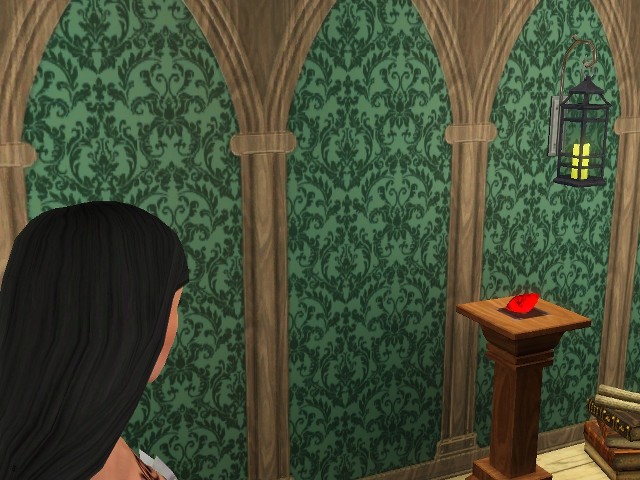 Rubia set the glowing gem that was Salvia’s magic down onto a pedestal.
Rubia set the glowing gem that was Salvia’s magic down onto a pedestal. “When you return from exile, you may reclaim your magic. It will be here for you. But for now, you have to go to the Fons Veritatis again, to receive the marks of your behaviour.”
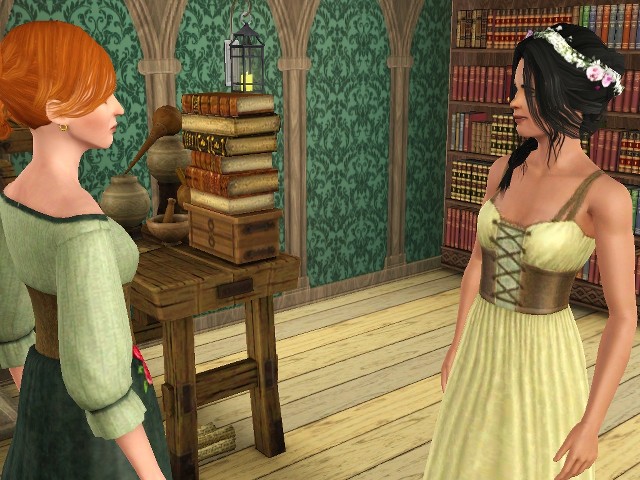 Salvia spent the night in the Theta Chamber again.
Salvia spent the night in the Theta Chamber again.“It won’t harm her now. And there’s no magic left in the walls for her to draw on. And no-one can sense her there – she is hidden.”
In the morning, Rubia let her come out, eat, wash, use the toilet, and then she dressed Salvia in different clothes.
“Perfect. You are a young girl, contemplating marriage, and coming to ask the fountain if you have made a good choice. And I am the aunt accompanying you.”
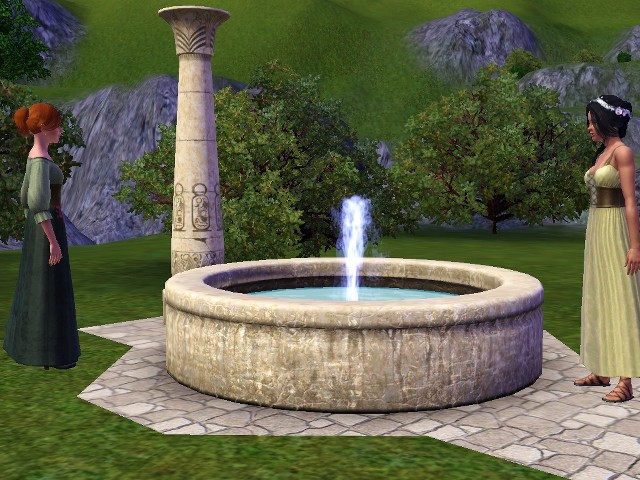 “Do you know what you have to do?” They were back at the Fons Veritatis, but without Calamintha’s reassuring presence.
“Do you know what you have to do?” They were back at the Fons Veritatis, but without Calamintha’s reassuring presence.Salvia shook her head.
“I will speak the law. You will put your hand into the water and say what you did to break it. This is the Fons Veritatis. Do not lie, or what will happen to you will be more terrible than you can imagine.”
Salvia shuddered. Every child had heard the stories. But she had never expected to live them. Lie to the Fons Veritatis, and you would become a monster of unsurpassed ugliness.
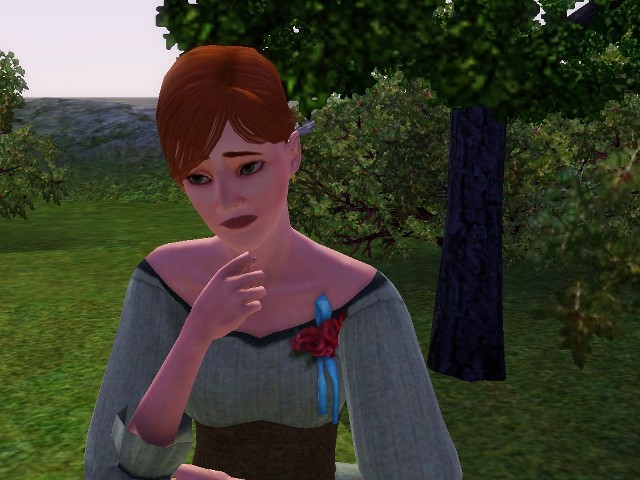 “Since it is to do with the First Five Laws, you do know I will have to speak of them all. They are whole in themselves, and may not be divided. Answer truthfully for the ones you have broken, and truthfully for the ones you have not. Say what you did to break them.”
“Since it is to do with the First Five Laws, you do know I will have to speak of them all. They are whole in themselves, and may not be divided. Answer truthfully for the ones you have broken, and truthfully for the ones you have not. Say what you did to break them.”
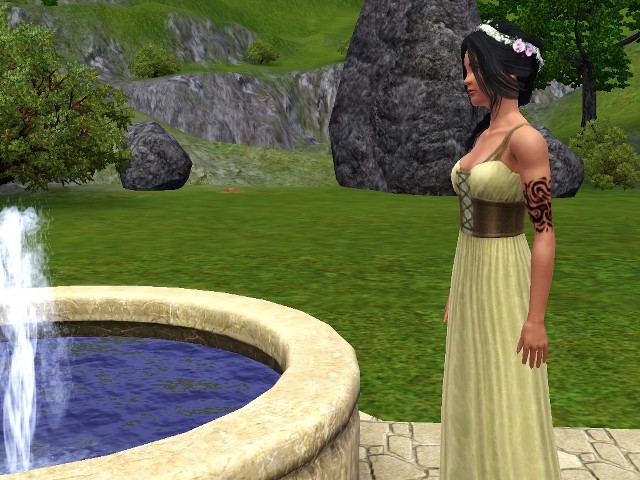 Rubia spoke the first of the laws that Salvia had broken.
Rubia spoke the first of the laws that Salvia had broken.“Tend the land.” The words rang, bell-like, over the fountain. Salvia bent and put her hand in the water.
“I caused brambles and weeds to grow in someone’s garden.”
Then she cried out in surprise, for the clear water turned black and oily. And she felt a sudden burning pain on her arm – and when she looked, there was a writhing, complex black symbol there that hadn’t been there before.
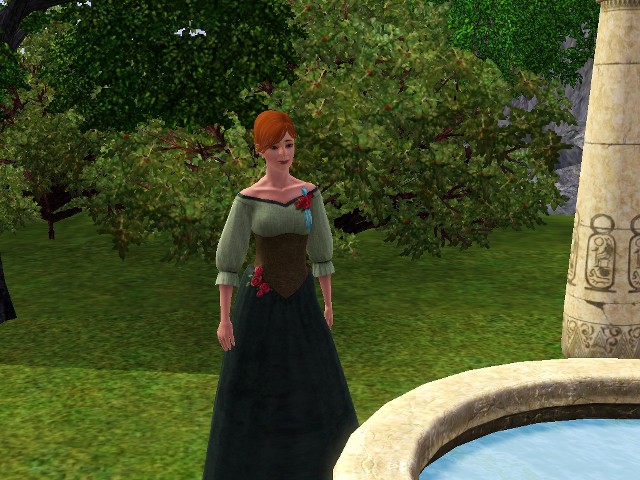 The water cleared, and Rubia spoke again.
The water cleared, and Rubia spoke again.“Protect the weak.”
Salvia bent and put her hand in the water again. Here, at the Fons Veritatis, the truth was as clear to her as the water she touched.
“I messed up a garden, and I didn’t care who it belonged to. I thought it was probably some old lady, and I didn’t care that I was making life hard for her.”
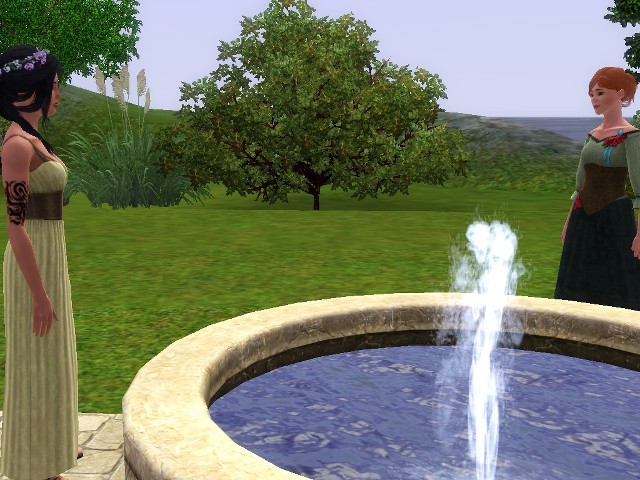 This time she was ready for the pain, brief but intense. It still left her blinking tears from her eyes though. She thought Rubia looked at her with some sympathy: certainly her voice was kinder when she said,
This time she was ready for the pain, brief but intense. It still left her blinking tears from her eyes though. She thought Rubia looked at her with some sympathy: certainly her voice was kinder when she said,“And now for the other three of the first Five Laws. Speak the truth.”
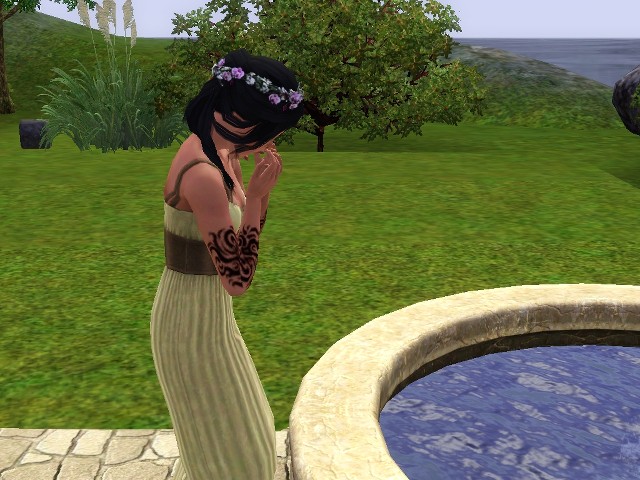 “But I don’t always.” Salvia really was in tears by now.
“But I don’t always.” Salvia really was in tears by now.“It doesn’t really matter, does it, if I don’t always speak the truth. At least, I thought it didn’t matter.”
Rubia went on, even as Salvia gasped at the pain and saw a third mark appear on her.
“Keep your vows.”
“I have broken my vows more than once.” Now Salvia was crying in earnest, as the water turned black once again, and once again the brief burning pain seared her arm.
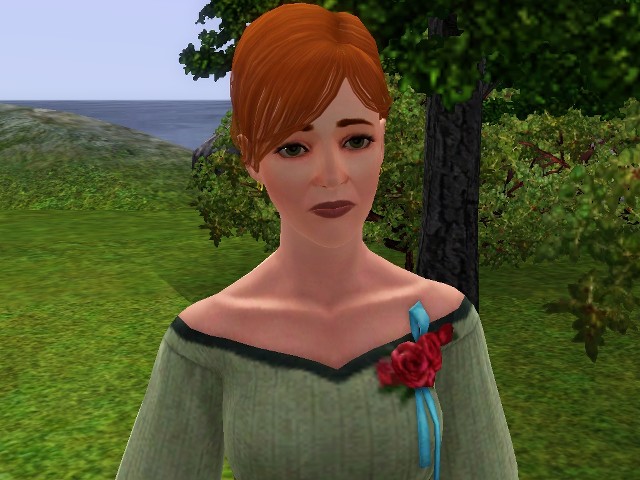 Rubia’s voice sounded worried as she said the last of the laws. Surely the girl couldn’t have broken all five? Salvia’s family weren’t poor, and she was not unloved – far from it. There was no excuse for her to have broken this one.
Rubia’s voice sounded worried as she said the last of the laws. Surely the girl couldn’t have broken all five? Salvia’s family weren’t poor, and she was not unloved – far from it. There was no excuse for her to have broken this one.“Neither covet nor steal.”
“I have done both.” Salvia could not – dared not – lie.
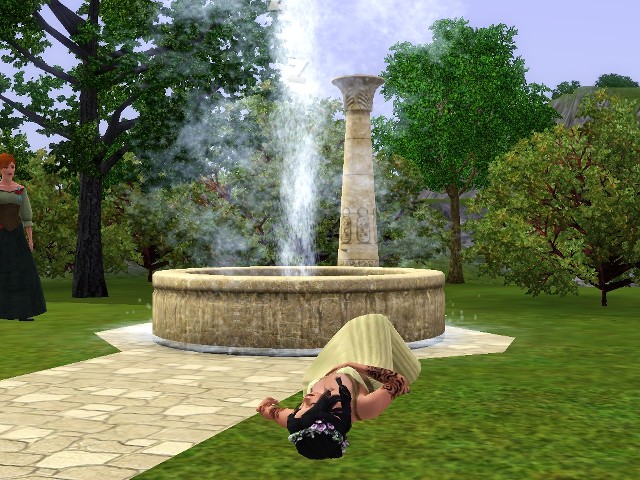 Suddenly the Fons Veritatis shot high up into the air. Salvia cried out and fell to the ground.
Suddenly the Fons Veritatis shot high up into the air. Salvia cried out and fell to the ground.
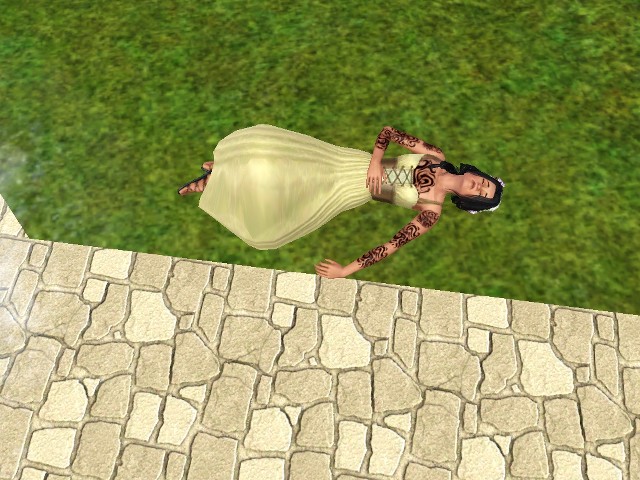 As the water from the fountain played over her, Rubia saw to her amazement – and shock – dark patterns wriggling over Salvia’s body and settling there on her skin. She had read of this – but never expected to see it.
As the water from the fountain played over her, Rubia saw to her amazement – and shock – dark patterns wriggling over Salvia’s body and settling there on her skin. She had read of this – but never expected to see it.
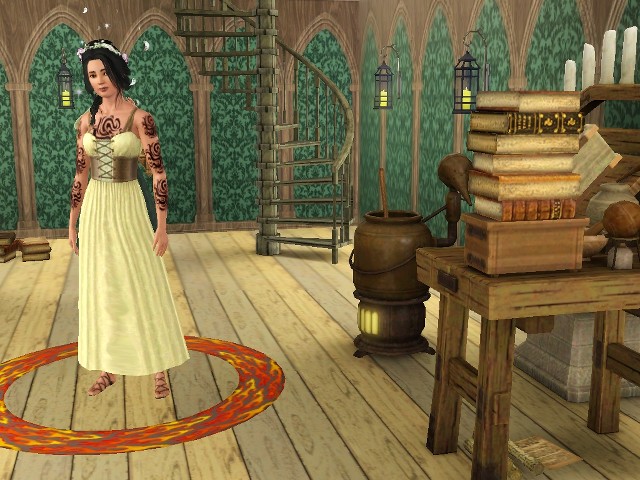 Salvia came round back at Rubia’s cottage. Somehow, Rubia had got them both home. She climbed to her feet, and instantly found herself inside a ring of small flames.
Salvia came round back at Rubia’s cottage. Somehow, Rubia had got them both home. She climbed to her feet, and instantly found herself inside a ring of small flames.
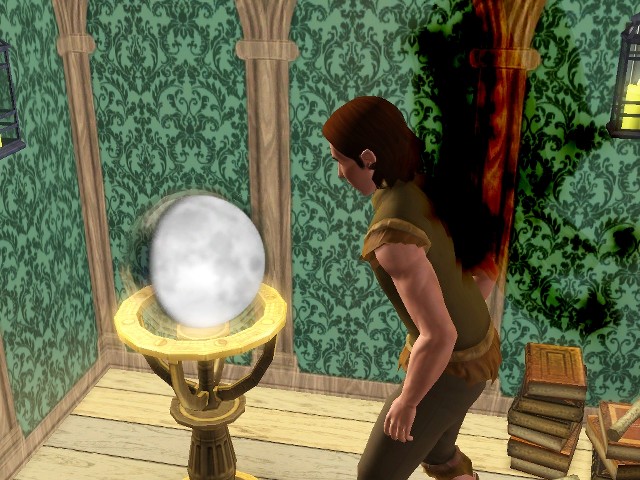 Sambucus was bent over a crystal globe, gazing into its depths.
Sambucus was bent over a crystal globe, gazing into its depths.“This goes beyond us and our plans. The Fons Veritatis itself has marked her.”
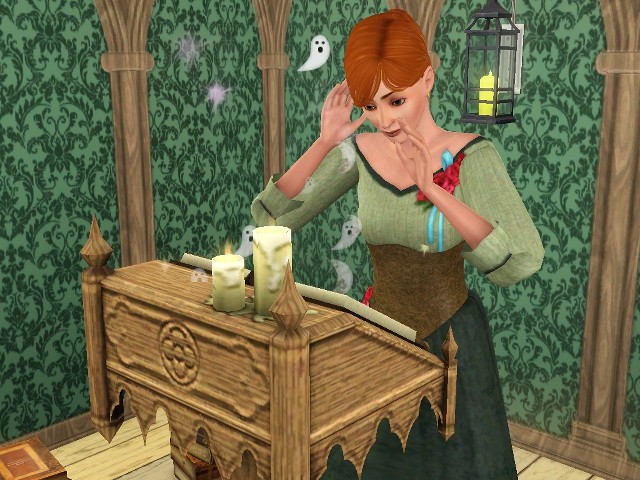 Rubia was consulting another of the many books that were in the room.
Rubia was consulting another of the many books that were in the room.“No. Our plans can still stand. There is no conflict. But her exile will be far longer than she thought it would be.”
“Then should we continue with it, if that is going to be the case?”
“Sambucus. What has happened to your family? Your sister?”
“She died in childbirth, and the twins with her.”
“And your three cousins?”
“You know! The same happened to them and their babies!”
“We have no choice. The plan can still go ahead.”
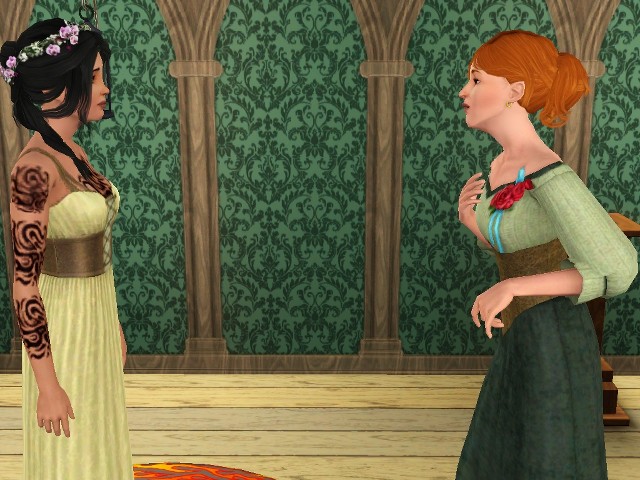 Rubia walked over to Salvia.
Rubia walked over to Salvia.“Do you know what it means, to erase the marks of your behaviour?”
“Yes. It means to go and think about what you have done.”
“No! It does not! Why have you not been taught the truth? It means exactly what it says. And you bear the marks. You will be able to return from exile only when those marks have gone, only when you have erased them.”
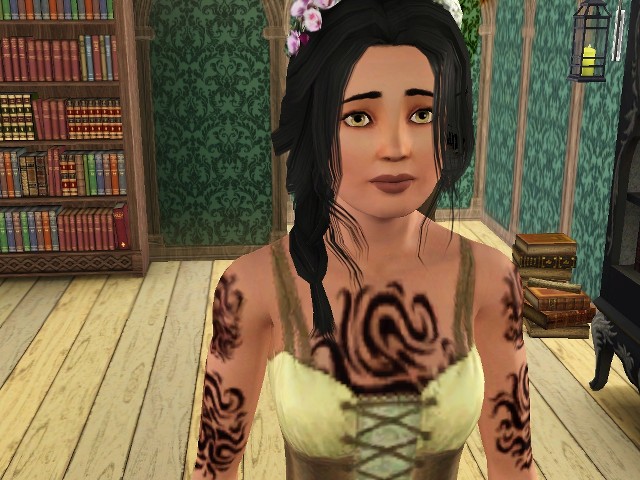 “But how do I do that?”
“But how do I do that?”
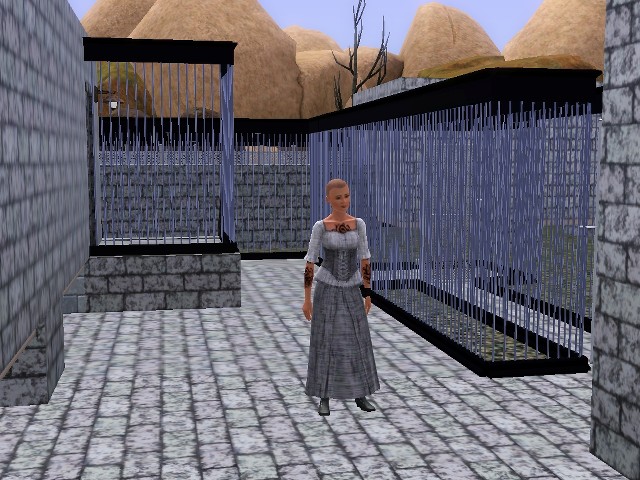 And then, maddeningly and frustratingly, her memory shut down again. Try as she might, she couldn’t remember Rubia’s answer. She had no idea what she had to do, to erase the marks on her body.
And then, maddeningly and frustratingly, her memory shut down again. Try as she might, she couldn’t remember Rubia’s answer. She had no idea what she had to do, to erase the marks on her body.
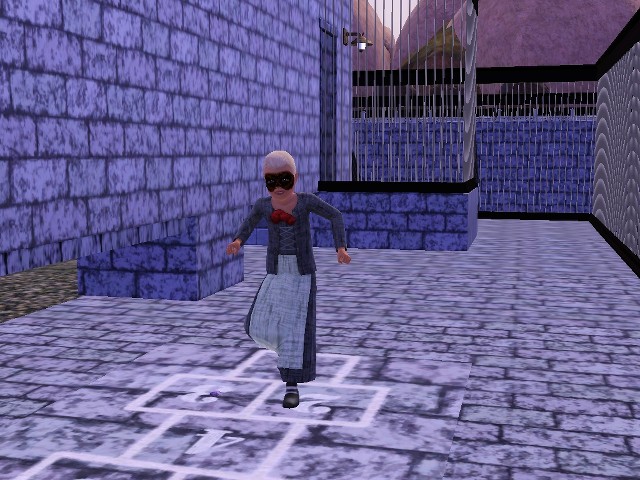 One thing she could do, Salvia decided, was to teach the children how to play. She found a loose bit of stone, and scratched out a hopscotch grid. The children grasped the idea of the game quite quickly. Watching San, Salvia thought she almost saw a smile appear on her face.
One thing she could do, Salvia decided, was to teach the children how to play. She found a loose bit of stone, and scratched out a hopscotch grid. The children grasped the idea of the game quite quickly. Watching San, Salvia thought she almost saw a smile appear on her face.
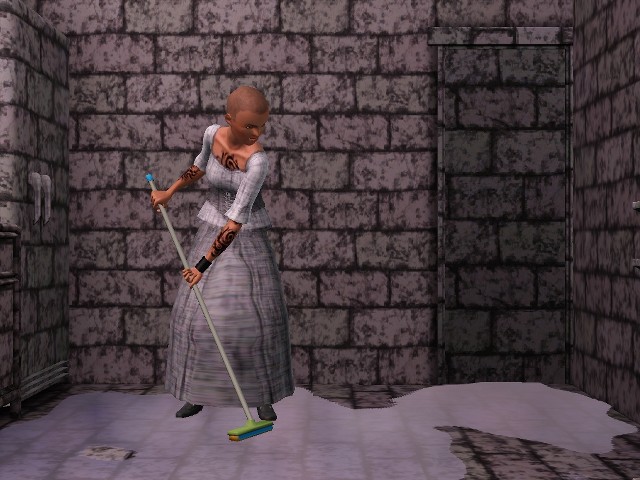 But Salvia herself still felt hopelessly out of her depth. She still wasn’t managing to get breakfast ready on time. She left the tap running, and flooded the floor. The cleaning didn’t come naturally to her, and took her ages to do. And, eating away at the back of her mind, was the knowledge that she had deserved to be here. She had broken all of the First Five Laws. The dark swirling marks on her arms and body were a constant reminder to her of what she had done.
But Salvia herself still felt hopelessly out of her depth. She still wasn’t managing to get breakfast ready on time. She left the tap running, and flooded the floor. The cleaning didn’t come naturally to her, and took her ages to do. And, eating away at the back of her mind, was the knowledge that she had deserved to be here. She had broken all of the First Five Laws. The dark swirling marks on her arms and body were a constant reminder to her of what she had done.
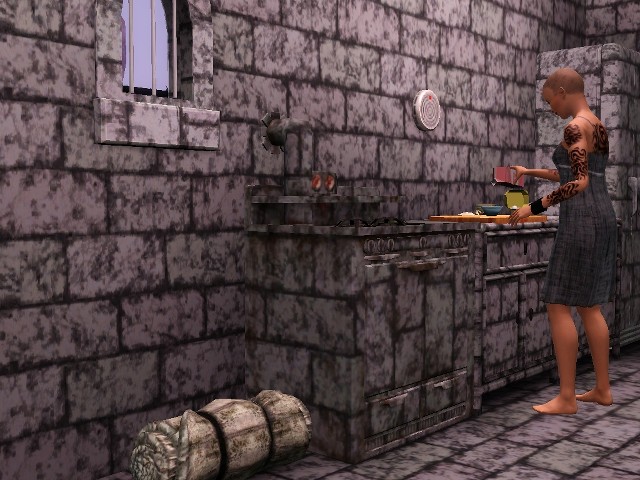 Salvia began to make more of an effort, rising as the light was just beginning to show in the sky in order to have breakfast ready for the children. The week’s laundry was collected – the children put it outside the gates on their way to school – and clean laundry was delivered, along with fresh food. The rough coarse clothes made her skin itch and she had to fight not to scratch herself all the time. For some reason, the top of her right leg was the worst place – she’d taken to sleeping on her left side or her back. And sometimes, the marks of her behaviour were warm to the touch, almost unpleasantly so.
Salvia began to make more of an effort, rising as the light was just beginning to show in the sky in order to have breakfast ready for the children. The week’s laundry was collected – the children put it outside the gates on their way to school – and clean laundry was delivered, along with fresh food. The rough coarse clothes made her skin itch and she had to fight not to scratch herself all the time. For some reason, the top of her right leg was the worst place – she’d taken to sleeping on her left side or her back. And sometimes, the marks of her behaviour were warm to the touch, almost unpleasantly so.
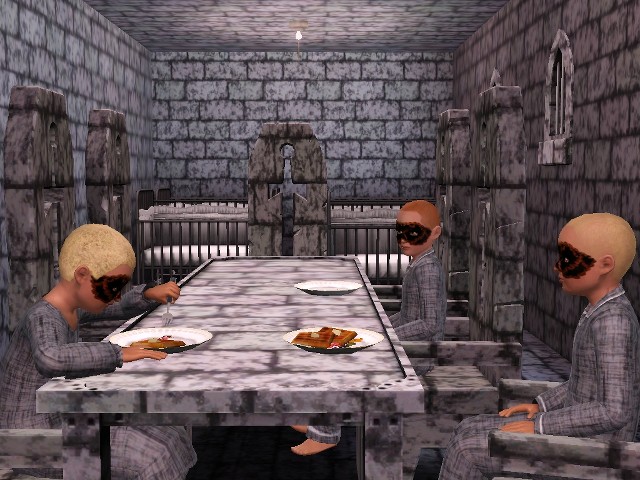 Salvia felt really proud of herself when she finally got all the children fed before school. It worried her though that everywhere was so dreary. The poor things hardly saw any colour or beauty at all. And their clothes were so ugly – and the haircuts were pretty brutal too.
Salvia felt really proud of herself when she finally got all the children fed before school. It worried her though that everywhere was so dreary. The poor things hardly saw any colour or beauty at all. And their clothes were so ugly – and the haircuts were pretty brutal too.
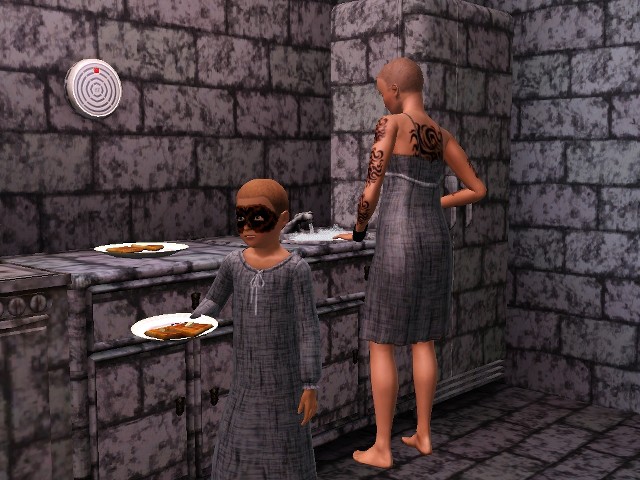 “Ichi, who cuts your hair?” Salvia asked, as she began washing the dishes. Today, she was going to get on top of what needed doing!
“Ichi, who cuts your hair?” Salvia asked, as she began washing the dishes. Today, she was going to get on top of what needed doing!“The Roku does it. It says that we should look like what we are”
Well, I’m not going to cut it, thought Salvia.
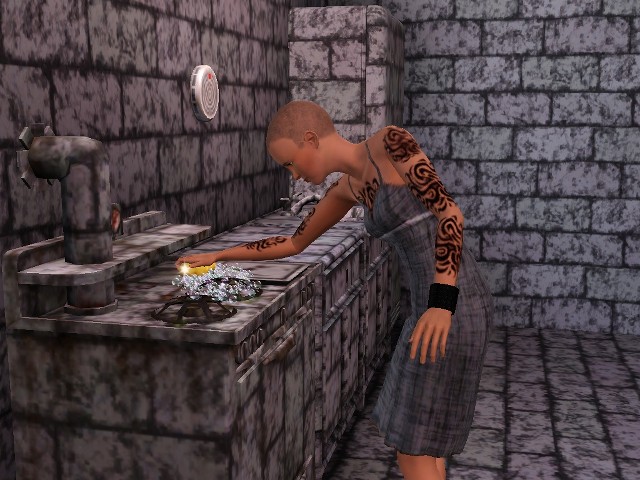 As the children left for school, Salvia began to attack the mess that was the cooker. What did Ichi mean: we should look like what we are? What had the children been told about themselves?
As the children left for school, Salvia began to attack the mess that was the cooker. What did Ichi mean: we should look like what we are? What had the children been told about themselves?
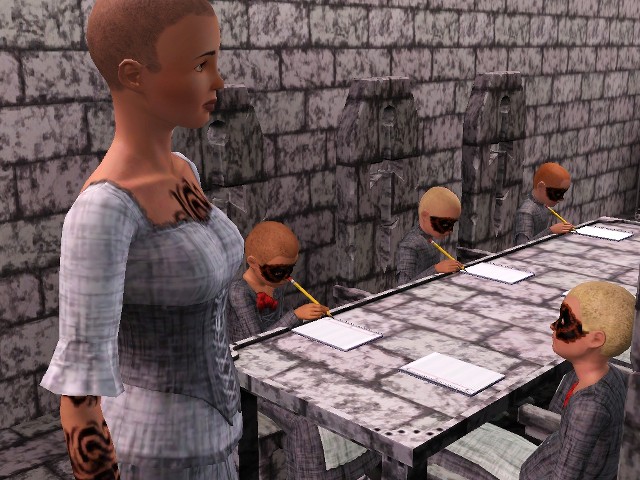 “San,” Salvia asked, as the children did their homework. “What do people say you are?”
“San,” Salvia asked, as the children did their homework. “What do people say you are?”San looked up. “Bad. Very bad. It should not exist. But this world has rules, so it cannot be killed. It will be kept in here instead and kept away from others so that it cannot harm them. It must hide its face because it is so ugly. It cannot have a name, only a number.”
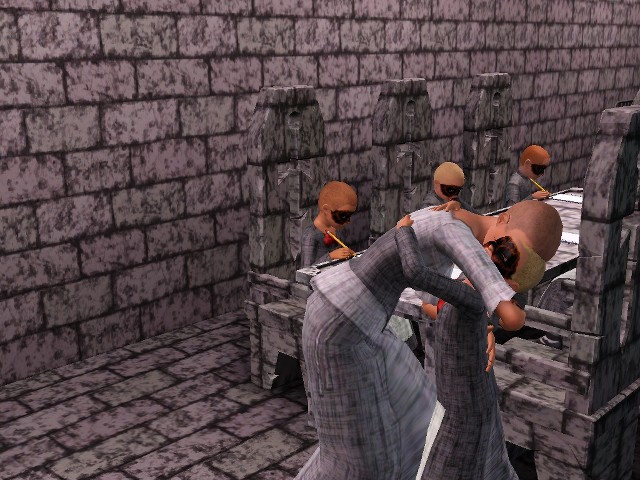 What did San mean: they were so ugly? The soldiers Salvia had seen when she arrived looked just like herself. San wasn’t ugly! Moved with sudden compassion, Salvia swept the little girl up into her arms.
What did San mean: they were so ugly? The soldiers Salvia had seen when she arrived looked just like herself. San wasn’t ugly! Moved with sudden compassion, Salvia swept the little girl up into her arms.“You are not ugly. And how can you be bad if you’ve lived here all your life?” I’m the bad one, she thought. I had everything, and I didn’t care enough about it.
“And you shall have a name. Let me look at you, and see what name will suit you.”
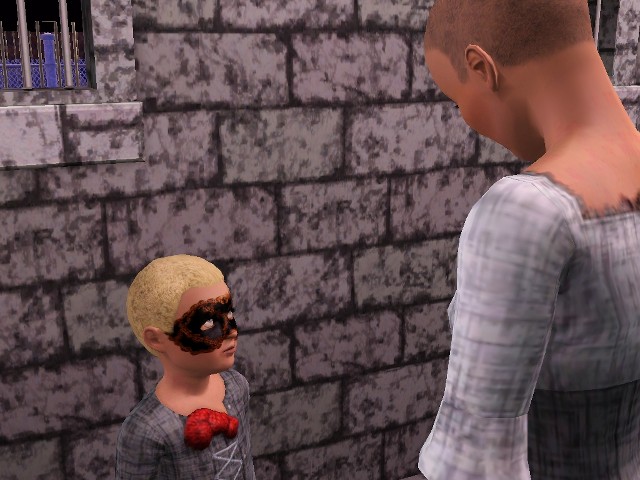 Salvia looked down at the face San raised towards her. Fair hair, blue eyes – San was like a little flower really. And so young. Salvia didn’t think she was much more than seven years old.
Salvia looked down at the face San raised towards her. Fair hair, blue eyes – San was like a little flower really. And so young. Salvia didn’t think she was much more than seven years old.“You’re a little flower,” she said. “A little shy springtime flower. A little primrose.”
“What’s a flower?”
“Something beautiful. Like you, my little Primrose. Like you.”
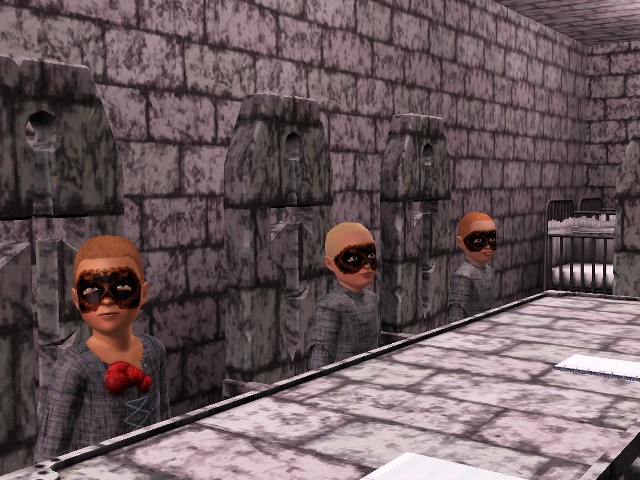 The other children turned and looked at both Salvia and Primrose. Salvia knew what they were thinking.
The other children turned and looked at both Salvia and Primrose. Salvia knew what they were thinking.“Yes. You can all have names. I have to choose them carefully, so that they suit who you are, so it will take me a little time to find the right ones for you. But I will find a name for each of you.”
No comments:
Post a Comment